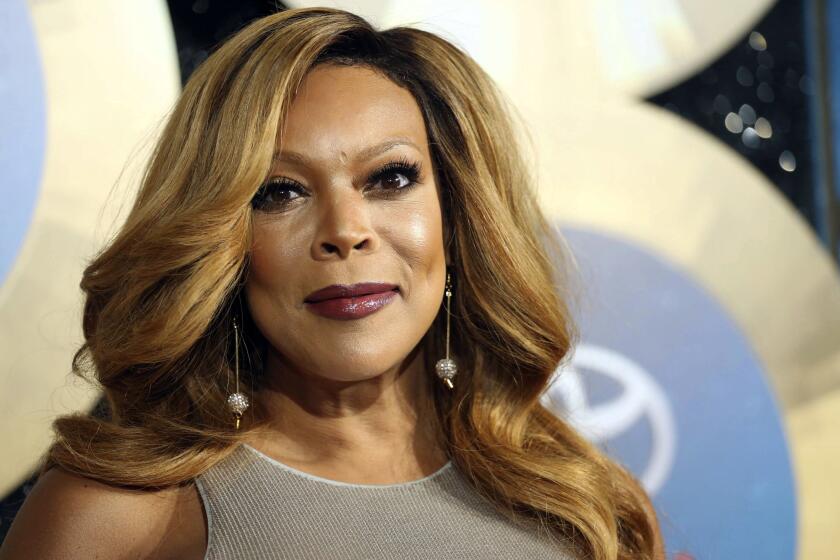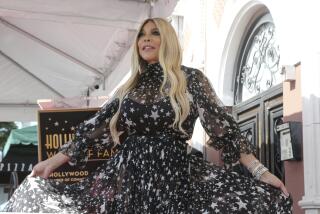‘Where Is Wendy Williams?’ producers say they asked themselves ‘should we be filming this or not?’
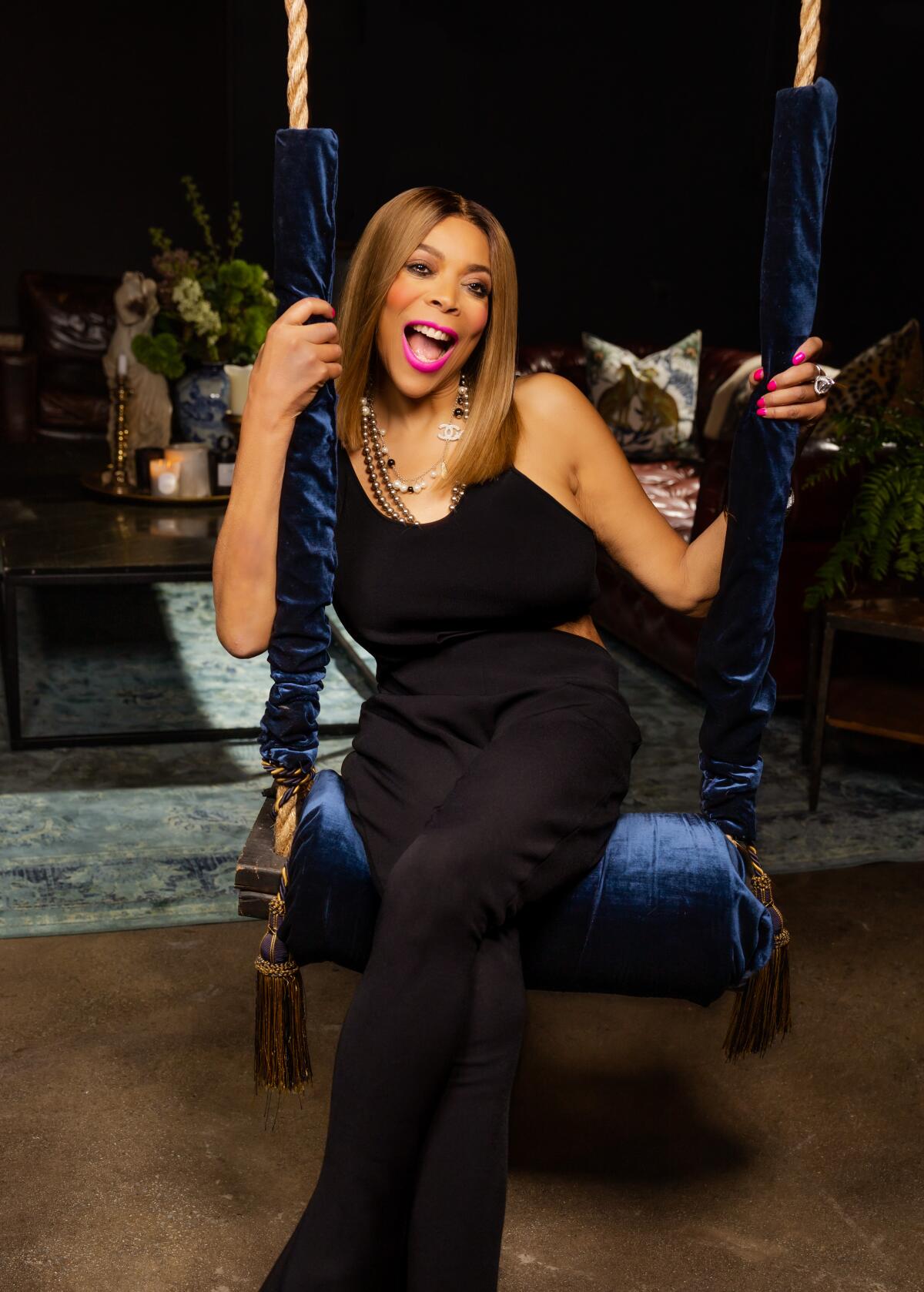
For executive producer Mark Ford, the new Lifetime documentary “Where Is Wendy Williams?” embodies the talk show host’s ethos of “radical honesty.”
“If we had sanitized it and just made it seem like everything was fine, we wouldn’t be telling the truth,” he said over Zoom on Monday, after the Lifetime docuseries concluded.
That truth is 4½ hours of unsettling footage shown over two nights featuring Wendy Williams, whose catchphrase “How you doin’?” is turned toward her, and exploring her life over the last two years under guardianship, which has cut her off from her family.
In the docuseries, Williams, 59, is prone to tearful outbursts, erratic behavior and memory loss. She berates her employees, drinks bottles of vodka and often lies in bed all day. Williams is supposed to be launching a podcast, but ultimately, she is in no condition to work, and her team and family battle over what’s best for her throughout the docuseries. In the final episode, her son says she has been diagnosed with alcohol-induced dementia. (In the days leading up to the documentary’s premiere, representatives for Williams released a statement, saying she’s battling aphasia and frontotemporal dementia.)
Wendy Williams’ team confirmed that the TV personality’s health has taken a turn for the worse. She was diagnosed with aphasia and frontotemporal dementia.
Ford and co-executive producer Erica Hanson spoke with The Times about “Where Is Wendy Williams?,” the ethical implications of the docuseries and exposing the talk show host’s guardianship. This conversation has been condensed and edited for clarity.
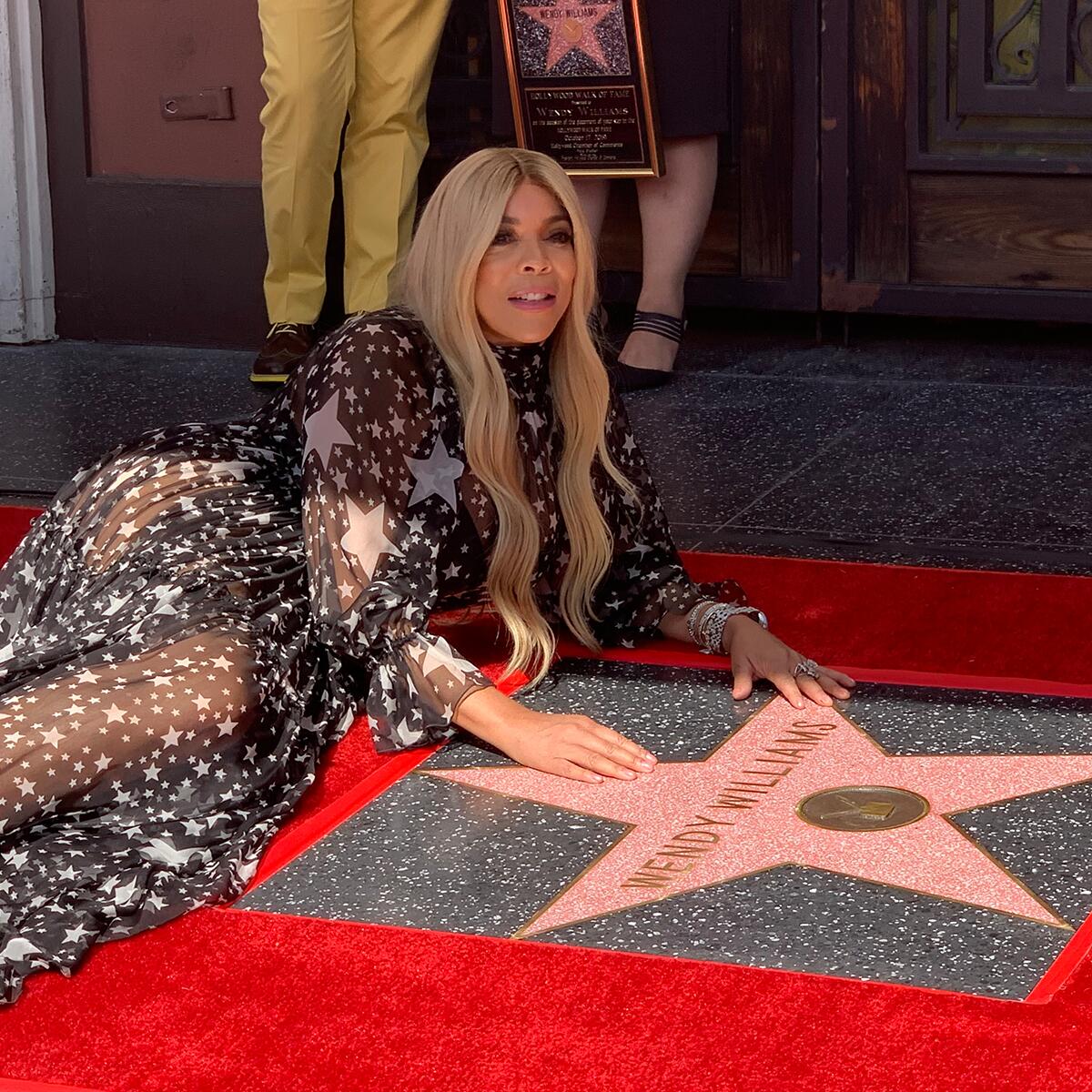
What was the original purpose of the documentary, and did that purpose shift?
Mark Ford: The purpose definitely shifted. We were the producers of her original Lifetime documentary, “Wendy Williams: What a Mess!,” which was her title, by the way, not ours, and this was really intended to continue where that documentary left off and pick up Wendy after her show, document the next chapter of her life and, hopefully, starting a new endeavor with a podcast and entering the next chapter of her life post-divorce. But as we got into it, the more and more we filmed, we realized that wasn’t going to be the story and that there was this much deeper, more serious story that was revealing itself to us.
There’s a lot of conversation about the ethics of this documentary being made. Can you say she was of sound mind when she signed on to do the project?
Ford: Well, first of all, we never would have entered into the project if we knew that Wendy had dementia, and the project was signed off by her guardian, her attorneys or managers, her publicist, herself and then, ultimately, her family. We entered into the process with the understanding that, of course, she was of sound mind, and Wendy had good days and she had bad days. That’s what was so confusing for the crew — the behavior became increasingly erratic the more we filmed, and then the deeper we got into it, honestly, it became more of a concern [about] what would happen to Wendy if we stopped filming than if we continued. We also knew that we had the power to never air it. If this film couldn’t go in a redeeming or positive direction, then I guarantee you Lifetime never would have aired it, and we wouldn’t have been interested in airing it. It was a very confusing, complex process as filmmakers to figure out daily: Should we be filming this [or] not?
Ultimately, we hope people get to the end of it and understand why we decided to finish the project with Wendy, her family and her management all supporting it. And it’s telling a story that’s not just Wendy’s but a universal story about what happens to a family when they have a loved one who’s incapacitated, then is removed from their care and put into a legal guardianship and all the things that can occur when that kind of situation is allowed to continue.
Erica Hanson: We were a very small team, and this was truly a labor of love. It is hard to watch at times, and it was hard to be filming at times. We wanted to shed light on what became this period of life for Wendy over the course of a year when she was living pretty much in complete isolation in this apartment. We became increasingly concerned for her well-being. Could she fall down the staircase? [And] her addiction to alcohol. We got to a point where if we weren’t there, what would happen? I think too, many of us had been deeply affected by dementia or addiction in our own families, so it was something that we cared a lot about and felt a great responsibility to portray the struggles and the fragility [of] the state she was in at times.
The talk show host, now the subject of a Lifetime biopic and accompanying documentary, opens up about date rape, rehab and her ex-husband.
You both mentioned that you wondered what would happen if you weren’t there filming. What did the film crew provide that gave her stability to some degree?
Ford: I mean, Wendy always loved filming. She lights up with the cameras [on her], especially in the beginning, and it gave her a reason to get up in the morning. There wasn’t much going on in Wendy’s life before [we] started filming. She was watching TV in bed all day, and the film was a real sense of purpose for Wendy to tell her story, to tell her truth. It just became more and more complex as we went on because it wasn’t just the story about Wendy and her career comeback, it was now a story about someone who was under a legal guardianship and who was potentially in harm’s way and wasn’t being guarded on a daily basis. We didn’t see nurses or healthcare workers or anyone coming through that house or helping her.
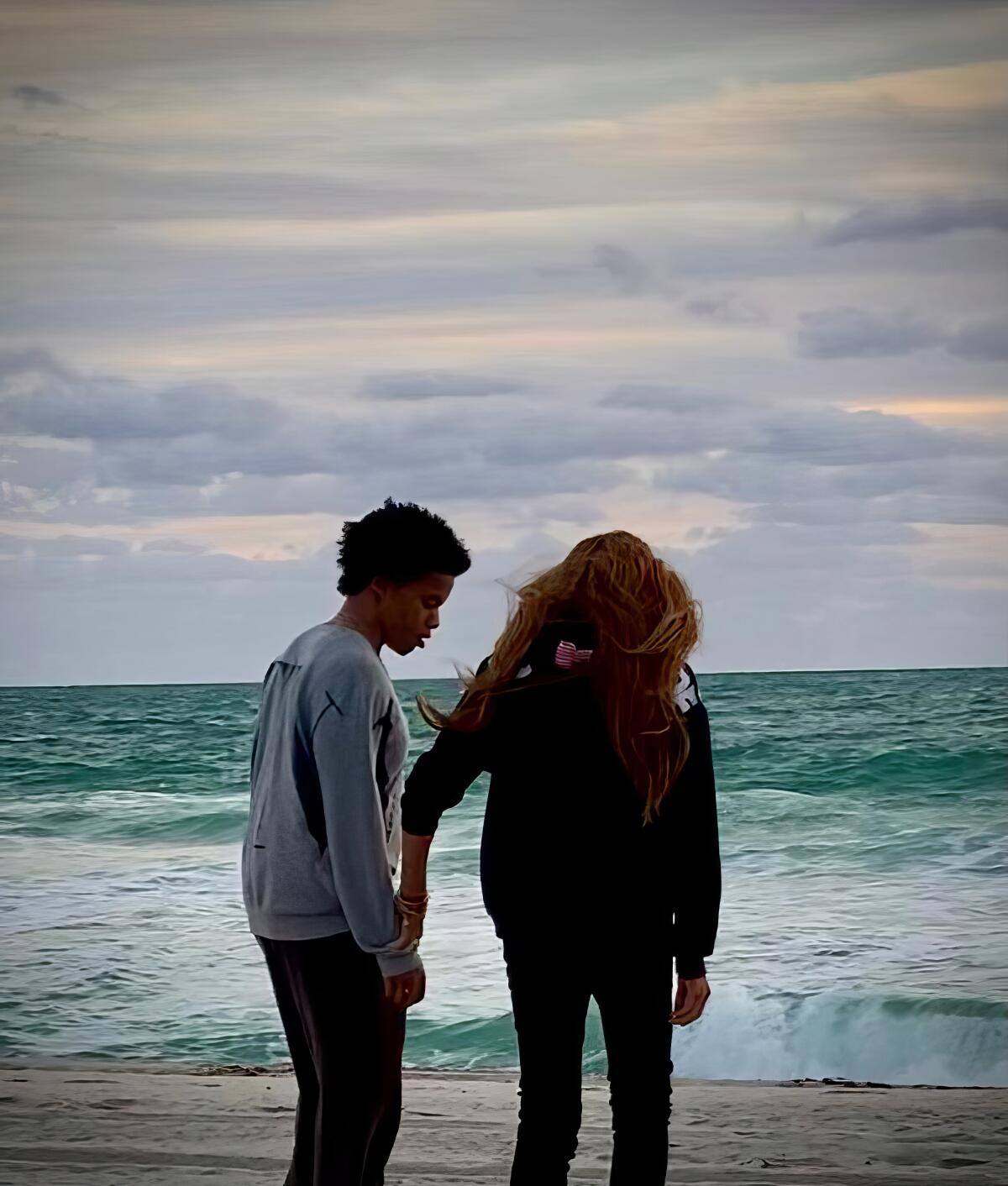
It became imperative to us that the family be brought into the story, and then they revealed their story to us. That became even more fascinating to depict: to understand how this nice family was removed from the care of their loved one and why. Because those legal proceedings are all under the cloak of secrecy and we’re not able to see them, the family was the only one we could bring into the fold to explain what it’s like when this happens to you. [In the documentary, intertitle cards explain that the court proceedings for the guardianship, which began in 2022 after Wells Fargo petitioned for it, are sealed and when the guardian’s name is said, it is bleeped out. The suit filed last week to stop the release of the documentary was filed by her guardian, Sabrina Morrissey.]
So you never saw any nurses or anyone from the medical field pass through during filming?
Hanson: We did know that she went to doctor’s appointments, but in the apartment, there were no caregivers. I think a cleaning team came once a week but I never saw a caregiver there.
It’s interesting that this is coming out after the Free Britney movement and the large conversation around Britney Spears’ conservatorship. What do you want people to get out of the documentary in terms of what conservatorships look like?
Ford: Well, as Wendy says, in her own words, “If it can happen to me, it can happen to you.” It is happening to many thousands of families across the country now, where, for whatever reason, families can be removed [as guardians], and those reasons could be legitimate, or they could be illegitimate. Wendy has this incredible platform. She’s always been the most radically honest storyteller in media, except at this point the story is about her and her struggles. We just want people to understand and watch it, and that’s why the difficult moments are left in there. If we sanitized the film and just made it look like everything’s great, then there really wouldn’t be an urgency for change.
The family was also shocked to see the decline of Wendy. You see in the documentary, she had spent a bunch of time with her family in Miami under the care and supervision of her son and her family. Then when she was removed from that care and left alone in New York, under the legal guardian, she looks completely different. I’m sure there are a lot of reasons for that, but all we wanted to do as storytellers was to be as honest and forthright about what we encountered, and also as compassionate and responsible as possible to tell the story in a redemptive way, with purpose.
Hanson: I think too it was really important to hear the family’s point of view [and] what it’s been like for them to have a family member in a guardianship and to not be able to reach them, the person not being able to call her, not knowing how she’s being treated.
Ford: It’s not immediately apparent what to do, and it’s very difficult to fight a guardianship and get a loved one out of it. It’s a very difficult, shadowy process, frankly. We even spent a year trying to dig into the research, and there’s just not a lot to dig into. It’s all very much undercover.
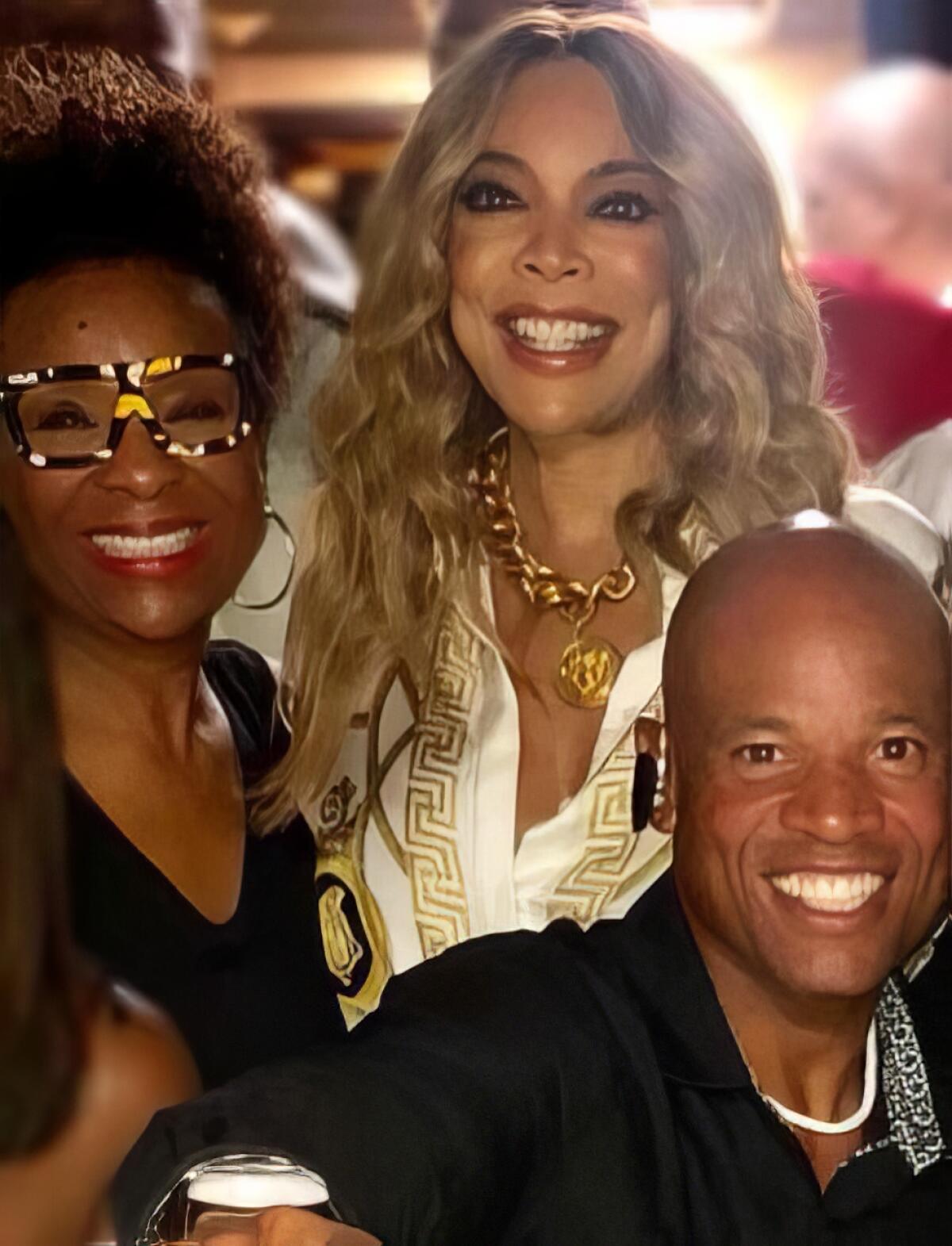
Were there interviews that you weren’t able to attain that you feel would have added more dimension to the story?
Ford: Well, of course, we wanted the guardian to do an interview. We wanted her doctors to do interviews early on, and they refused. Having more clarity earlier in the process would have made this project very different, but you can see in the film, we as filmmakers were in the dark until the very end of filmmaking when we then learned from the family that there was a diagnosis of dementia. At that point, [it] had turned more into the story of the guardianship, [and we asked ourselves] was this the right, safest way for Wendy to move forward? If people had more information that they could have shared at the beginning, this would have been a very different project. We waited to put Wanda [Finnie’s, Wendy’s sister,] interview in the last piece of it for that purpose because we wanted people to understand that this was a journey of discovery. The filmmakers weren’t aware of a lot of information until toward the end of the filmmaking and so that informs the way you view a lot of the footage because we as filmmakers were in the dark and asking questions.
Hanson: It took time for the family to come around. That was a process. Wanda, by the end, felt really strongly that she wanted to have that voice, and as she mentioned in the film, Wendy was happy that she was in it.
Has Wendy seen the documentary, and have you spoken to her since filming stopped?
Hanson: We’ve not spoken to Wendy since we stopped filming in April [2023], and I don’t know if she’s seen the documentary.
Ford: We’ve heard that she’s seen the documentary but secondhand, so we really can’t say for a fact if she has or not.
Many of the reviews and conversations around the documentary have criticized it for being exploitative. How do you feel about that?
Ford: Well, I hope everyone will just watch all 4½ hours before they make the judgments. We know it’s a painful and difficult thing to watch, but the “why” of it is really revealed toward the end. And we never would have brought this story to air if we didn’t think it could have a positive ending for Wendy, her family and the world at large. With the platform the film has, hopefully, some real changes can occur.
I did want to point out that in New York state, it’s our understanding that there’s a bill and [a legislative] committee there aimed at restricting guardian abuses and prohibiting guardians from restricting family members from contacting people that have been placed into a guardianship. If that bill moves forward, it would be illegal to keep Wendy or her family from contacting her. I think this family, like any other family, just wants a say in their loved one’s life and how they’re being treated medically and just to know they’re OK. We just happened into this situation, in some ways, unwittingly, and found a story that hopefully — though painful to watch — can have a positive impact on Wendy, her family and the world.
Was there anything too painful that was filmed that you just decided could not be shown?
Ford: There were many, many things we filmed that we didn’t air and also things that seemed redundant. We hope that everything in the film serves a narrative purpose and moves the story forward. But there were many days also that we just didn’t film at all because it wasn’t appropriate. We did think it was important to be honest about the decline Wendy went through. If we had sanitized it and just made it seem like everything was fine, we wouldn’t be telling the truth. Wendy’s legacy has always been radical honesty, even if it’s painful, so we hope that this film fits within that Wendy Williams legacy.
More to Read
The complete guide to home viewing
Get Screen Gab for everything about the TV shows and streaming movies everyone’s talking about.
You may occasionally receive promotional content from the Los Angeles Times.
